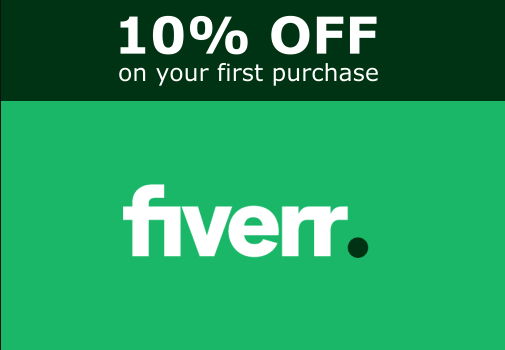As a small business owner, managing payroll is one of those tasks that can either run smoothly in the background or become a source of constant headaches. The right payroll service can make a world of difference, not just in terms of accuracy and compliance, but also in how you feel about running your business day-to-day. I’ve spent some time exploring various payroll solutions, and while I don’t believe in a one-size-fits-all approach, I’ve compiled a list of ten payroll companies that stand out for different reasons. I’m not here to hard sell you on any of them—my goal is simply to share what I’ve found so you can make an informed decision that feels right for your business.
1. Gusto
Gusto is who I use and I love it, but that doesn’t mean it will be perfect for you. So be sure to read through your options below.
Why It’s Worth Considering: Gusto is often recommended for its user-friendly interface and comprehensive features that go beyond payroll. In addition to processing payroll, Gusto offers benefits administration, compliance support, and HR tools. For small businesses that want an all-in-one solution, Gusto makes it easy to manage payroll and benefits together.
• Best For: Businesses looking for an integrated payroll and HR solution.
• Cons:
• Higher cost compared to more basic payroll services.
• Some advanced HR features may not be necessary for very small businesses.
Get $200 From Gusto
Get Your Exclusive Gusto Discount
(Run your first payroll and get $200)
2. ADP
• Why It’s Worth Considering: ADP is a well-established name in the payroll industry, known for its reliability and robust features. ADP offers a wide range of payroll services, from basic to advanced, catering to businesses of all sizes. They also provide extensive reporting and compliance features, which can be a big help if you’re managing a growing team.
• Best For: Businesses that anticipate scaling and need a system that can grow with them.
• Cons:
• Pricing can be higher than competitors, especially for smaller businesses.
• The interface can be complex and overwhelming for new users.
3. Paychex
• Why It’s Worth Considering: Paychex is another veteran in the payroll industry, offering flexible payroll services that can be customized to fit your business needs. They provide comprehensive support for payroll, taxes, HR, and even retirement plans. Paychex is a solid choice for small businesses that value flexibility and customization.
• Best For: Businesses looking for tailored payroll solutions with strong customer support.
• Cons:
• Setup and customization can be time-consuming.
• The pricing structure is not as transparent as some other services.
4. Intuit QuickBooks Payroll
• Why It’s Worth Considering: If you’re already using QuickBooks for accounting, their payroll service is a natural extension. Intuit QuickBooks Payroll integrates seamlessly with QuickBooks, making it easy to manage your finances and payroll in one place. The platform is particularly user-friendly, which is a big plus for business owners who handle payroll themselves.
• Best For: Small businesses already using QuickBooks for accounting.
• Cons:
• Limited integration with non-Intuit products.
• Customer support can be inconsistent.
5. Square Payroll
• Why It’s Worth Considering: Square Payroll is designed with small businesses in mind, offering a straightforward and affordable payroll solution. It’s particularly appealing to businesses that already use Square for payments, as the integration is seamless. Square Payroll also supports both full-time employees and contractors, making it versatile for different types of businesses.
• Best For: Small businesses that already use Square or need a simple payroll solution.
• Cons:
• Limited features compared to more comprehensive payroll services.
• Not ideal for businesses with more complex payroll needs.
6. OnPay
• Why It’s Worth Considering: OnPay is known for its simplicity and transparency, with flat-rate pricing and no hidden fees. It offers all the essential payroll features you’d expect, plus benefits management and HR tools. OnPay is particularly user-friendly, making it a good choice for small business owners who want to streamline payroll without getting bogged down in complexity.
• Best For: Small businesses looking for a straightforward, affordable payroll service.
• Cons:
• Fewer advanced features compared to competitors like Gusto or ADP.
• Limited integrations with other software platforms.
7. Patriot Software
• Why It’s Worth Considering: Patriot Software offers a budget-friendly payroll solution that doesn’t skimp on features. It’s easy to use and includes essential payroll functions like direct deposit, tax filing, and reporting. Patriot also offers add-ons for time and attendance tracking, making it a good choice for businesses that need basic payroll services with optional extras.
• Best For: Small businesses looking for an affordable, no-frills payroll solution.
• Cons:
• Limited HR features compared to more comprehensive platforms.
• Add-ons can increase the overall cost.
8. SurePayroll
• Why It’s Worth Considering: SurePayroll is designed specifically for small businesses, offering a full-service payroll solution that’s easy to use. They handle payroll taxes, compliance, and even offer a mobile app for on-the-go payroll management. SurePayroll’s customer service is also highly rated, which can be a big plus if you need a little extra support.
• Best For: Small businesses that value customer support and ease of use.
• Cons:
• Limited integrations with other business tools.
• The mobile app lacks some features available on the desktop version.
9. Rippling
• Why It’s Worth Considering: Rippling is more than just a payroll service—it’s a comprehensive platform that integrates HR, IT, and payroll in one place. Rippling offers powerful automation features that can save you time on payroll and other administrative tasks. If you’re looking for a solution that goes beyond payroll, Rippling might be worth exploring.
• Best For: Small businesses looking for an all-in-one platform that includes payroll, HR, and IT management.
• Cons:
• Higher cost compared to other payroll-only services.
• The extensive feature set can be overwhelming for very small businesses.
10. Wagepoint
• Why It’s Worth Considering: Wagepoint is a simple, user-friendly payroll solution that’s designed for small businesses. It offers essential payroll features like direct deposit, tax filing, and year-end reporting, all with a focus on ease of use. Wagepoint’s pricing is straightforward, and they’re known for their friendly customer support.
• Best For: Small businesses that want a simple, reliable payroll service with great customer support.
• Cons:
• Limited features compared to more robust platforms.
• No advanced HR or benefits management features.
Final Thoughts: No One-Size-Fits-All Solution
Choosing the right payroll service for your small business is a personal decision that depends on your specific needs and priorities. What works for one business might not be the best fit for another, and that’s okay. I’ve shared these ten options based on their strengths and weaknesses, but ultimately, it’s about finding a solution that feels right for you and your team.
Take the time to explore these options, try out demos if they’re available, and see which one aligns best with your business’s workflow. Whether you’re looking for an all-in-one solution like Gusto or Rippling, or a more straightforward service like Patriot Software or Square Payroll, the right payroll company is out there for you. And when you find it, you’ll know it—it’ll just feel right.
At the end of the day, payroll is about more than just paying your employees; it’s about supporting your team and making sure they feel valued. The right payroll service can help you do just that, without adding unnecessary stress to your plate. I hope this overview helps you on your journey to finding the perfect payroll solution for your small business.

